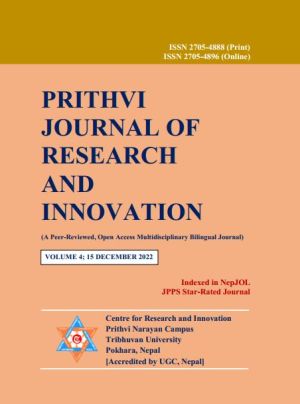Challenges of Policy Making in Phedikhola Rural Municipality
DOI:
https://doi.org/10.3126/pjri.v4i1.50156Keywords:
Policy making, legal knowledge, legislative committee, localizationAbstract
Policy making has a significant meaning for each level of government. Nepal formally adopted a federal democratic system and the role of local governments has been increased drastically since then. As a doorstep government of the people, local bodies completed their first five years of tenure under the federal system. Concerned with this study, Phedikhola Rural Municipality, one of the rural municipalities in Gandaki Province of Nepal, enacted several policies in the form of acts, rules, procedures, bylaws, directives and decisions. A few of the policies were also reviewed. The policies concerned with agriculture, education, health, infrastructure development, youth enterprising, good governance and the use of barren land got an overwhelming popularity. However, local governments have faced several problems in formulating such policies. The problem of localization of policies, the dominating role of bureaucracy, lack of skilled human resources, problem in identifying local needs and a host of other elements stood as a heavy barrier in the policy-making sector. The policy-making institution has not yet found to be effective to deliver its assigned task. In this context, this article aims to explore the challenges of policy-making faced by the local governments of Nepal. It attempts to assess the challenges from the viewpoint of stakeholders contributing to enhance institutional capacity in formulation and implementation of policies in the future. This article is qualitative, using descriptive, exploratory and analytical design. Both primary and secondary sources were used for data collection. Key Informants Interview (KII), Focus Group Discussion (FGD) and field observation were intensively used.
Downloads
Downloads
Published
How to Cite
Issue
Section
License
Copyright (c) 2022 Centre for Research and Innovation (CRI), Prithvi Narayan Campus (TU)

This work is licensed under a Creative Commons Attribution-NonCommercial 4.0 International License.
© Centre for Research and Innovation (CRI), Prithvi Narayan Campus (TU)

